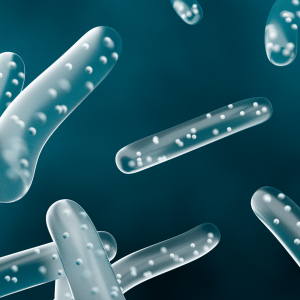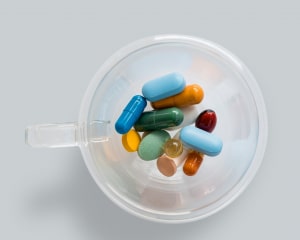Can probiotics help with burnout or burnout symptoms?
Can probiotics help with burnout or burnout symptoms?
Are you suffering from burnout or burnout symptoms? Then you must be looking for ways to feel better again. Maybe you’ve already tried all kinds of things, but have you ever considered probiotics? In this blog post, we dive into the world of probiotics and discover if it can help with burnout symptoms. So grab a seat and read along!
What exactly is probiotics?
First a little intro about probiotics. Probiotics are live microorganisms, usually bacteria, that populate your intestines. They are often called “good bacteria” because they can provide all kinds of health benefits. You can find probiotics in fermented foods such as yogurt, kefir, sauerkraut and kimchi. But you can also swallow it as a supplement.
Now you may be thinking: swallowing bacteria, is that healthy? Not to worry, probiotics are safe for most people. In fact, our bodies desperately need those good bacteria for proper digestion, a strong immune system and even for our mental health. Yes, you read correctly – those little teeming critters in your gut can affect your mood and state of mind!
The link between gut and brain
Scientists are discovering more and more about the fascinating connection between our gut and brain, also called the gut-brain axis. It turns out that our gut bacteria can send signals to our brain via the vagus nerve, a long nerve that runs from your brain all the way to your gut. Thus, bacteria can influence the production of neurotransmitters such as serotonin, which in turn affects your mood.
But it also works the other way around: stress and negative emotions can disrupt the balance of your gut flora. And let burnout be accompanied by a lot of stress and psychological symptoms! Do you see the link? This disrupted gut flora can also make you feel worse mentally, and so you end up in a vicious circle.
Probiotics for burnout: what does the science say?
Okay, enough theory. Let’s see what science says about probiotics for burnout. There hasn’t been much research specifically on burnout yet, but there has been research on the effects of probiotics on stress, anxiety and depression. And the results are promising!
For example, a review study shows that probiotics can have a positive effect on mild to moderate depression. In particular, certain strains, such as Lactobacillus and Bifidobacterium, seem to have a dampening effect on negative feelings. Another study showed that a probiotic supplement increased the mental resilience of healthy volunteers during a stressful period.
Of course, more research is needed to draw firm conclusions about probiotics for burnout. But given its beneficial effects on stress and mood, it is certainly worth trying as an adjunct to other treatments.
How can probiotics help with burnout?
Let’s take a look at exactly how probiotics might help with burnout symptoms:
- Improve gut health: Burnout can mess up your digestive system. Probiotics can help rebalance your gut flora and reduce symptoms such as abdominal pain, diarrhea and constipation.
- Strengthen the immune system: Stress and exhaustion make you more susceptible to infections. Probiotics support your natural defenses, making you more resistant to viruses and bacteria.
- Relieve stress and anxiety: As we saw, certain probiotic strains can lower stress hormones and dampen anxiety. This can help ease the mental strain of burnout.
- Improve mood: Probiotics can stimulate the production of happy chemicals such as serotonin. This can make you feel less gloomy and dejected, which is common in burnout.
- Promote a healthy lifestyle: By keeping your gut healthy, you lay a good foundation for an overall healthy lifestyle. And let that be crucial for recovery from burnout!
Tips for using probiotics
Have I convinced you to give probiotics a chance? Great! Here are some more practical tips:
- Choose a supplement with multiple strains and a high concentration, such as our VLife Immune Health
- Start with a low dose and build up slowly to let your gut get used to it.
- Preferably take probiotics on an empty stomach, such as before breakfast.
- Give it at least a month – the effects are not noticeable overnight.
- Support the probiotics with prebiotics, fibers that serve as food for the good bacteria. You can find them in vegetables, fruits, legumes and whole grains.
Of course, probiotics are not a panacea for burnout. A multidisciplinary approach involving therapy, stress management and lifestyle changes remains important. But probiotics can be a valuable piece of the puzzle in the recovery process.
Conclusion
Pfoeh, that was a hefty dose of information about probiotics and burnout! Let’s recap the main points:
- Probiotics are good bacteria that can promote your gut health and overall well-being.
- There is a strong connection between our gut and our brain, the gut-brain axis.
- Research suggests that probiotics can have beneficial effects on stress, anxiety and mood.
- For burnout symptoms, probiotics can potentially help by improving gut health, immunity and mental resilience.
- Probiotics are a safe and natural complement to other treatments for burnout.
So if you’re struggling with burnout, consider trying probiotics. Who knows, maybe those little stomach friends will help you get back on the road to a healthier and happier life. My fingers are crossed for you!
Do you have any experience with probiotics for burnout symptoms? Let me know in the comments below. And don’t forget to share this article with friends or family who may also benefit from it. Together we are strong in the fight against burnout!
Thanks for reading and until next time! Stay healthy, stay happy 😊


